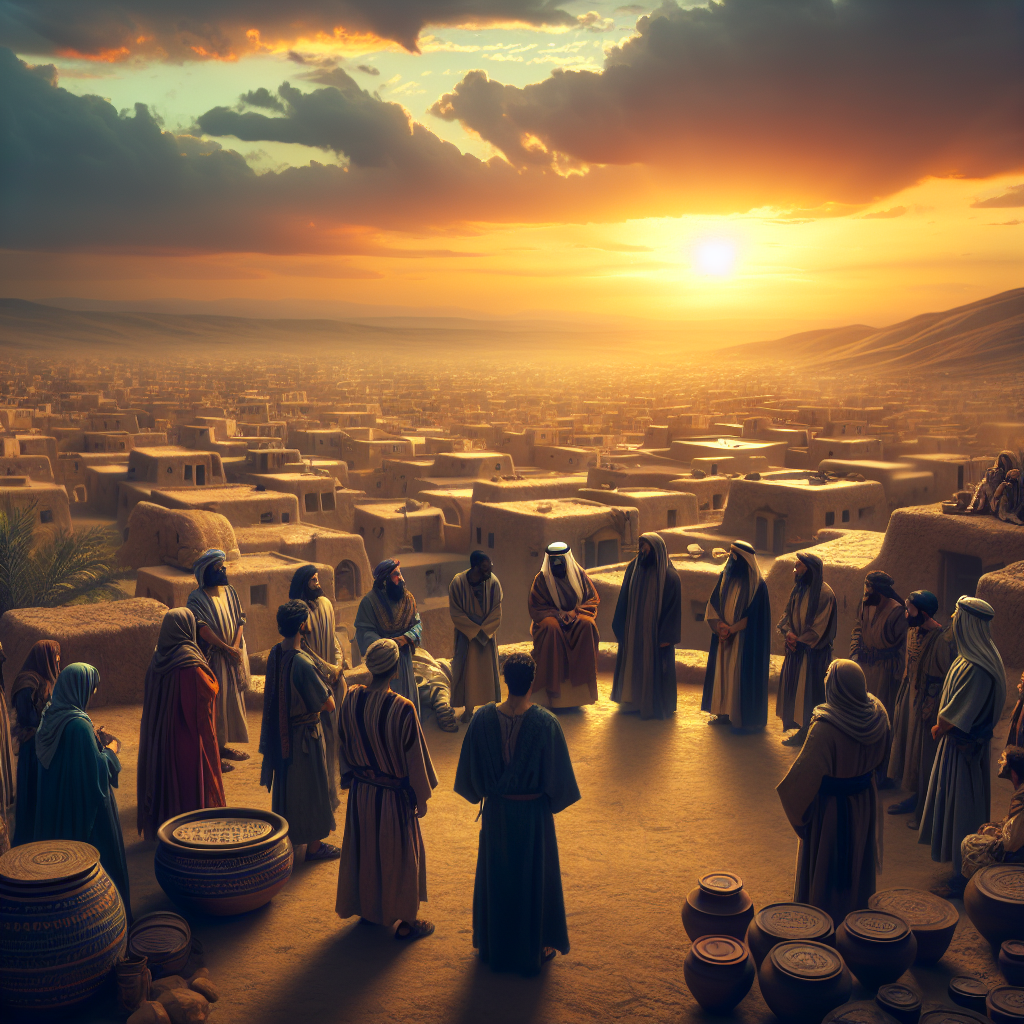The Testament of Faith: Connecting John Grisham’s Novel to Biblical Principles
Ever found yourself captivated by a story that resonates so deeply with your heart that it’s hard to put down? John Grisham’s "The Testament" is one such tale that intertwines wealth, power, family, and faith. As engaging as the narrative is, it becomes even more profound when we draw connections to biblical principles.
Let’s embark on this journey together, exploring how themes from "The Testament" parallel the timeless truths found in Scripture.
The Prodigal Nature of Wealth
In "The Testament," the story begins with the death of Troy Phelan, a billionaire whose passing seems to ignite chaos rather than closure. He leaves an unexpected will that bequeaths his vast fortune to an illegitimate daughter, Rachel Lane, a missionary deep in the Brazilian Pantanal. This startling turn of events brings to mind the biblical parable of The Prodigal Son.
Parable of the Prodigal Son: Luke 15:11-32
-
The extravagant waste of wealth by the prodigal son echoes the turmoil incited by Phelan’s previously ungoverned fortune.
-
Rachel Lane, living humbly despite her inheritance, parallels the older brother’s steadfastness but refrains from harboring resentment.
Reflection: How do we manage our resources? Are we squandering our blessings, or are we using them wisely to serve others?
The Transformation of Nate O’Riley
Nate O’Riley, a troubled lawyer sent to find Rachel Lane, experiences significant character growth through hardship, reflection, and ultimate redemption. His journey mirrors the Christian concept of transformation through grace.
2 Corinthians 5:17
-
"Therefore, if anyone is in Christ, the new creation has come: The old has gone, the new is here!"
-
Nate’s struggles with addiction and his eventual recovery emphasize the possibility of renewal and new beginnings through faith.
Reflection: What challenges in your life might God be using to transform and strengthen your faith?
Forgiveness and Redemption
In Grisham’s novel, forgiveness becomes a pivotal theme as characters grapple with past hurts and wrongdoings. This echoes the powerful biblical teaching on forgiveness, a central tenet of Christianity.
Ephesians 4:32
- "Be kind and compassionate to one another, forgiving each other, just as in Christ God forgave you."
In "The Testament," we see:
- Nate’s journey towards forgiving himself for his past mistakes.
- The dynamic between Rachel and Nate, where Rachel embodies unconditional forgiveness, reflecting godly compassion.
Reflection: Are there areas in your life where forgiveness is needed? How can you embody Christ’s teachings on forgiveness in your relationships today?
Wealth and True Riches
The novel starkly contrasts temporal wealth and eternal riches. Troy Phelan’s immense fortune becomes insignificant in the light of Rachel Lane’s spiritual legacy.
Matthew 6:19-21
-
"Do not store up for yourselves treasures on earth, where moths and vermin destroy, and where thieves break in and steal. But store up for yourselves treasures in heaven, where moths and vermin do not destroy, and where thieves do not break in and steal."
-
Rachel’s life among the indigenous people showcases the true wealth found in faith, service, and simplicity.
Reflection: What are the treasures you are storing up? Are they earthly and fleeting, or heavenly and eternal?
Faith as a Guiding Light
Rachel’s unwavering faith presents a stark contrast to the materialistic pursuits of her father’s other heirs. Her mission work in the Pantanal stems from a deep-seated belief that there is more to life than wealth and comfort.
Hebrews 11:1
- "Now faith is confidence in what we hope for and assurance about what we do not see."
Rachel demonstrates:
- Strong faith guiding her choices.
- A life aligned with biblical values, irrespective of earthly circumstances.
Reflection: How strong is your faith? Are you letting it guide your decisions and life’s direction?
The Power of Purpose
Rachel lives with a clear purpose, bringing the light of God’s love to remote places. This parallels the biblical call to live purposefully for God’s glory.
Jeremiah 29:11
-
"’For I know the plans I have for you,’ declares the Lord, ‘plans to prosper you and not to harm you, plans to give you hope and a future.’"
-
Understanding our purpose brings clarity and direction, much like Rachel’s dedication to her mission.
Reflection: What do you believe God’s purpose is for your life? Are you living in alignment with that purpose?
Conclusion and Call to Action
"The Testament" by John Grisham is more than a legal thriller; it’s a reflection on wealth, purpose, redemption, and faith. Each character’s journey sheds light on our struggles and triumphs in balancing material desires with spiritual growth.
As we draw parallels to biblical principles, we are reminded that:
- True wealth lies in our faith and service to others.
- Redemption and forgiveness are gifts that transform lives.
- Purpose and faith guide us through life’s challenges.
Call to Action: What lessons from "The Testament" resonate most with you? Share your thoughts and experiences in the comments below. How do you see God working through your life’s own twists and turns, much like the characters in Grisham’s novel?
Exploring such connections between literature and Scripture enriches our understanding and strengthens our faith. Let’s continue this journey together, one insightful reflection at a time.
If you want to learn how ANY book relates to Biblical principles, please try our Books and Scripture GPT. Simply type in the name of a book and let it show you insights you might not have been aware of!


